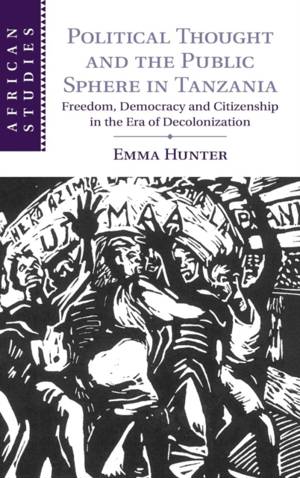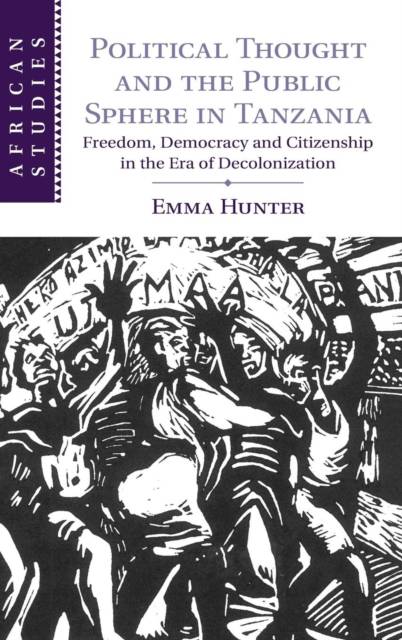
- Afhalen na 1 uur in een winkel met voorraad
- Gratis thuislevering in België vanaf € 30
- Ruim aanbod met 7 miljoen producten
- Afhalen na 1 uur in een winkel met voorraad
- Gratis thuislevering in België vanaf € 30
- Ruim aanbod met 7 miljoen producten
Zoeken
Political Thought and the Public Sphere in Tanzania
Freedom, Democracy and Citizenship in the Era of Decolonization
Emma Hunter
€ 183,45
+ 366 punten
Uitvoering
Omschrijving
Political Thought and the Public Sphere in Tanzania is a study of the interplay of vernacular and global languages of politics in the era of decolonization in Africa. Decolonization is often understood as a moment when Western forms of political order were imposed on non-Western societies, but this book draws attention instead to debates over universal questions about the nature of politics, concept of freedom and the meaning of citizenship. These debates generated political narratives that were formed in dialogue with both global discourses and local political arguments. The United Nations Trusteeship Territory of Tanganyika, now mainland Tanzania, serves as a compelling example of these processes. Starting in 1945 and culminating with the Arusha Declaration of 1967, Emma Hunter explores political argument in Tanzania's public sphere to show how political narratives succeeded when they managed to combine promises of freedom with new forms of belonging at local and national level.
Specificaties
Betrokkenen
- Auteur(s):
- Uitgeverij:
Inhoud
- Aantal bladzijden:
- 282
- Taal:
- Engels
- Reeks:
- Reeksnummer:
- nr. 133
Eigenschappen
- Productcode (EAN):
- 9781107088177
- Verschijningsdatum:
- 27/04/2015
- Uitvoering:
- Hardcover
- Formaat:
- Genaaid
- Afmetingen:
- 152 mm x 267 mm
- Gewicht:
- 498 g

Alleen bij Standaard Boekhandel
+ 366 punten op je klantenkaart van Standaard Boekhandel
Beoordelingen
We publiceren alleen reviews die voldoen aan de voorwaarden voor reviews. Bekijk onze voorwaarden voor reviews.







